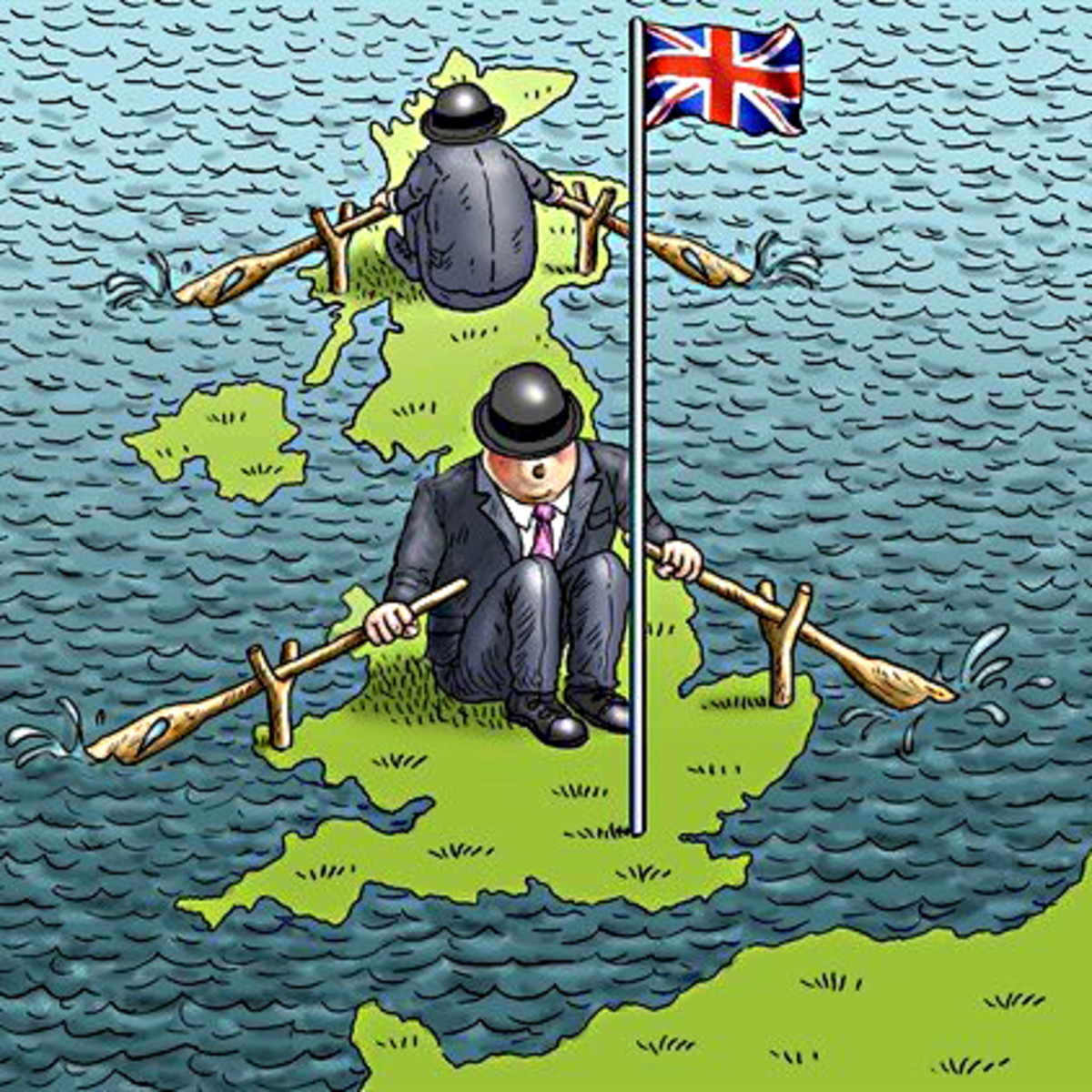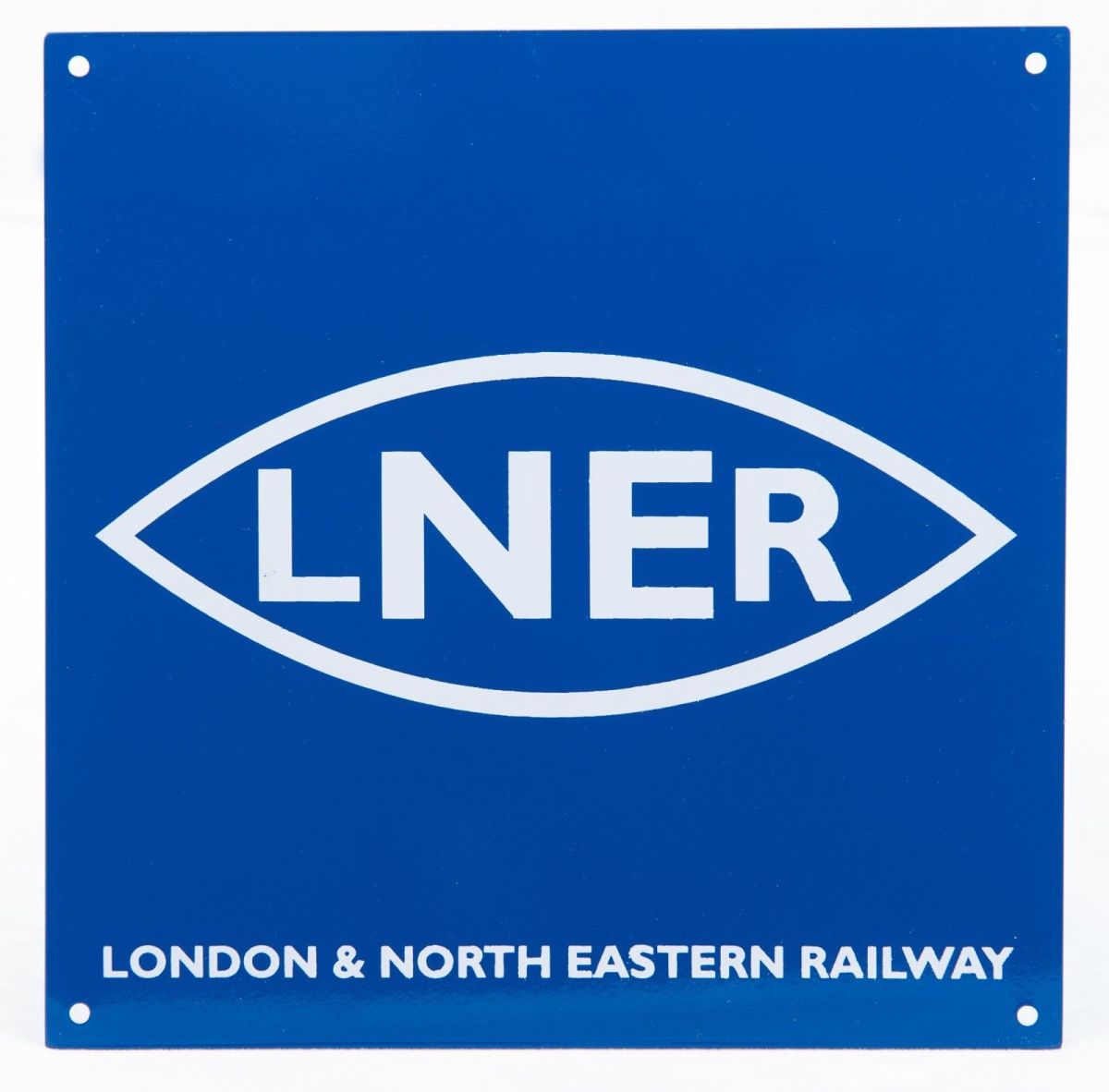Why Did Labour Lose The 2015 Election?
Public Opinion Polls
In the six weeks leading up to the UK 2015 General Election, Britain seemed to be heading for a hung parliament with the leading poll companies predicting that both Labour and the Conservative parties were on an even keel in the polls with an average of 34% of the vote.
Right up until the day of the elections predictions claimed that no political party would have an overall majority in the House of Commons and that the two main parties would have to make a deal with one or more of the smaller parties to Govern.
So how did the polls get it so wrong The Conservatives won by a small Majority, The Labour Party had a disastrous election and both parties were almost wiped out in Scotland.
Opinion Polls
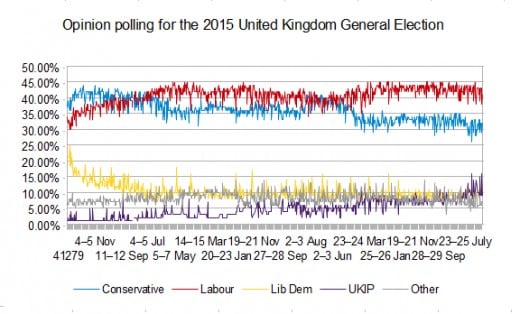
Why Were the Polls so Wrong?
If you go back a year to the Scottish independence elections the polls were proven to be wrong again.
All indications in the opinion polls especially in the week before the election had the majority of Scots saying yes at the ballot box and predicting an Independent Scotland, some opinion polls even suggested that there could be as much as a 15% win for the yes campaign. come election day the No to independence vote won out with a 10% majority.
On that occasion I actually knew that the public opinion polls were wrong and was never worried about the result.
Why were the polls wrong for Scotland?
- The yes campaign was very passionate which made it difficult for anyone who opposed them to say so publicly.
- The poles were targeting groups of people rather than individuals and if one person in the group said yes rather than disagree the others followed with the same answer.
- I was always a no voter in the election but if I was asked I would have said that I was unsure of which way I was voting.
- A lot of people just tell white lies when it comes to opinion polls
- polls only ask a very small percentage of the population
The polls got it wrong simply because of the passion of the yes campaign, people were if not scared of repercussions were reluctant to publicly oppose them.
2015 Public Opinion Polls
In 2015 it was neck and neck all the way up until the day of the election Labour and the Conservatives were both said to be on 34% in the opinion polls.
Where did the polls go wrong?
Many political experts have been debating what went wrong with the opinion polls this time around and although there is no definitive answer as of yet, opinions just like the polls differ.
- Higher Turnout: Because the polls were so close it is believed that more people who wouldn't normally vote took part in this election to ensure that the conservatives won.
- Don't Know Voters, apparently this time around instead of registering a don't know vote on the opinion polls the people carrying out the polls predicted who the don't know voters would vote for.
- Last Minute change of mind: Did some last minute event change the minds of thousands of swing voters?
- White Lies: A lot of people just tell white lies when it comes to opinion polls.
- Easy Answer: Some People just tell the pollsters what they think the pollsters want to hear
Whatever the reason, the Opinion Polls got the final result wrong.
Sample Poll (An opinion poll that should give only one result)
Which of the below would you prefer as a gift?
What Went Wrong For Labour?
We Know now that the opinion polls got it wrong and underestimated the Tory vote but where did the Labour Party go so wrong in underestimating the British Voters?
The Scottish Independence election of 2014 was the start of the end for the Labour party in Scotland.
In the 2010 General Election, Scotland elected 41 Labour Members of Parliament, 11 Liberal Democrat Members of Parliament, 6 Scottish Nationalist Members of Parliament and 1 Conservative Members of Parliament.
After the independence election there was a huge surge of support for the Scottish Nationalists and the main political parties just did not know how to deal with that surge. This was one occasion where the opinion polls got it correct they predicted an SNP surge and they got it right.
The Conservative party had nothing to lose in Scotland because they have been out of favor in Scotland since the Maggie Thatcher years.
The Labour Party on the other hand had 41 seats to lose and in fact they lost 40 of them to the Scottish Nationals.
Why?
The independence campaign witnessed a surge of voters turn to the SNP they simply had had enough of Westminster politics and wanted change, even with a 10% loss in the independent referendum on a 50/50 The SNP support grew from strength to strength and there really was nothing that the other parties could do about it.
Labour sided with the Tories during the independence election, some Scottish voters will never forgive them for that.
Labour were complacent in Scotland, believing they were almost untouchable, they underestimated the Scottish people who all along said that they wanted more powers and a fairer system of government.
Labour almost forgot Scotland existed during this election campaign and only seemed to come to Scotland as a token gesture.
All of the Major Parties Labour, Conservative, Lib Dem and UKIP all failed to take the views of the Scottish voter seriously and that was their major downfall.
Compare the election of 2010 to the election of 2015.
2010 Election Results on the Map
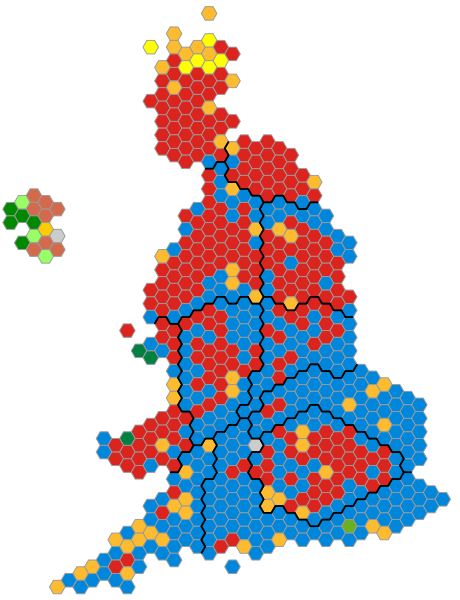
Scottish Election Results 2010 and 2015
Party
| 2010 Election
| 2015 Election
|
|---|---|---|
Labour
| 41 seats
| 1 seat
|
Lib/Dem
| 11 seats
| 1 seat
|
SNP
| 6 seats
| 56 seats
|
Conservative
| 1 seat
| 1 seat
|
The SNP WON WITH 57% OF THE SCOTTISH VOTE
2015 Electon Results on the Map
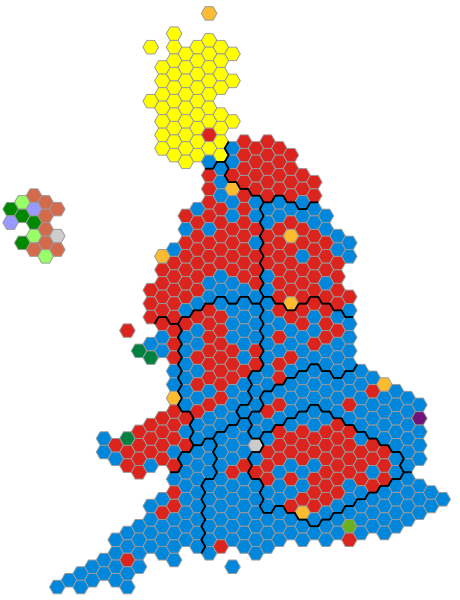
The Rich/Poor Divide
Another reason Labour lost the election was the rich/poor debate, Labour wanted to tax the richest in the country to help the poorest in the country.
That in principle is a good Idea but it fails to capture the heart of those in Britain who are neither rich or poor but hold that ground which in some circles are classed as the middle class.
Labour made no commitment for those people who make up the majority of the voters of Britain.
Tax the rich, tax relief for the poor but there really was nothing mentioned in any of the T.V debates or in the many many speeches about those who live in the middle ground.
SNP/Labour Alliance
One of the largest reasons that people failed to vote in the way that the opinion polls had suggested was simply because they were scared of a Labour/Scottish National coalition.
With the polls suggesting a hung Parliament the population was convinced that the only way that Labour would get a majority Government would be to join forces with the SNP.
This was off putting to a lot of English voters because they feel that a party who had fought so hard for independence should really not have a say in policy that only pertains to England.
Ed Miliband
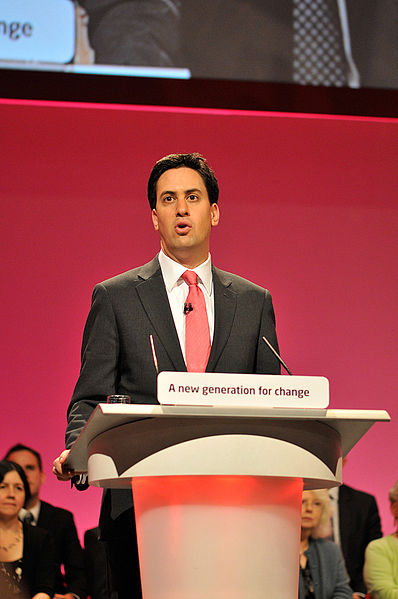
Ed Miliband
Ed Miliband the Labour Party Leader is also considered to be a big part of why voters turned away from Labour.
Was he a strong enough leader? Did he have what it takes to be Prime Minister?
We will never know the answer but during the television debates he did come across like an insurance salesman, he had a prepared speech for each question and it felt more like he was talking to the camera rather than to the people behind the camera.
After the election Ed Miliband resigned from his post as Labour Leader..
How Can Labour Go Forward from Here
With the resignation of Ed Miliband, Labour now have the chance to start over and in selecting a new leader, should consider the role that he will have to play to get the party back on track.
The Labour Party needs to build back the trust of the British People, they need a strong leader who listens to the people instead of guessing what it is that they actually want.
The party must stop pitting the rich against the poor and try to work a deal out that will suit everyone including those in the middle.
Labour need to remember that the people of Scotland just want a fair deal and for a Government who will listen to their concerns and to act on them.
Labour need a strong leader in whom the people can believe in to lead the country to a bigger and better future and a leader who maybe for the first time in the history of politics that tells you how it is and that people can trust 100%.


